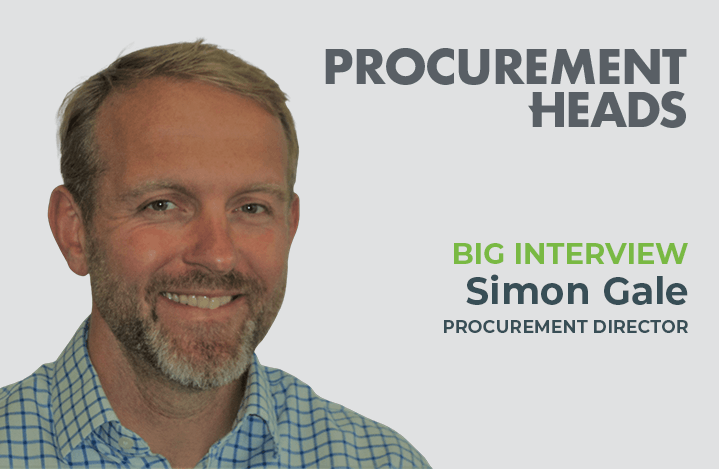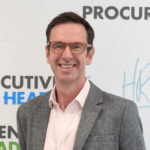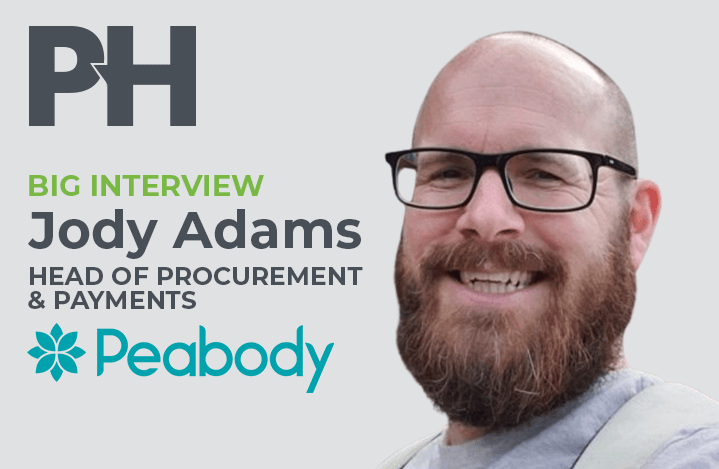For Procurement Heads‘ latest Big Interview, he spoke with Rupert Gaster to share what inspires him as a Procurement Leader.
How did you get into Procurement?
At school I sold chocolate bars, crisps and soft drinks, maximising profits by arranging bulk discounts with the local supermarket. On reflection, I was destined to get into Procurement.
From there I graduated onto trading souvenirs across Africa and India. I learnt a few tough lessons but generally managed to buy the right products at the right price.
My commercial endeavours led me to look for a professional role and I joined Capgemini’s graduate programme in 1999.
After four years in the UK focusing on Procurement transformation and supply chain projects, I emigrated to Australia.
During the two years in Australia, I was introduced to Strategic Sourcing.
At the Commonwealth Bank of Australia, I was responsible for the publications, events and post categories.
In 2005 I returned to the UK and Procurement transformation until 2009 when I moved into a Category Management role at the Metropolitan Police Service.
What does your typical day at work look like?
When I’m not travelling it’s all about helping get the kids up and ready for school.
By 7.30 we go our separate ways.
It’s not far to the office and most of the time I cycle rather than drive; we’ve got great facilities (showers, gym, lockers) at the office.
Summer is a great time to travel. Generally speaking, everyone’s a bit more relaxed around the holiday season and it’s good to catch up face-to-face with Heads of Country as well as local team members.
One of my favourite places to visit is Bucharest Old Town, the whole place comes alive during the summer months, winter’s not so nice and extremely cold.
We’re very fortunate to have a strong welfare team at Sony and this summer they organised a summer challenge to see which team could cycle the most kilometres during July and August.
It was a great competition with more than 70 teams entering and although narrowly missing out on the top spot to a team from Stuttgart, I thoroughly enjoyed every minute of it.
What do you love about Procurement?
Behaviourally I’m quite analytical so requirement definition is probably my favourite area.
A well-specified set of requirements that meet the needs of the business – rather than the wants – makes the rest of the Procurement process simple and ensures the service is ultimately fit for purpose.
In addition to the requirements setting, I also like the fact that the scope of Procurement categories is so broad.
At Sony, we focus on the marketing categories of media, production and shopfront as well as corporate, people and IT.
Learning new and diverse categories is always interesting.
Are there any aspects of Procurement that you find challenging?
Yes, by far the most difficult is recruiting talent.
Sony has a strong brand in the market and that looks good on the CV, but it still never ceases to amaze me how difficult it is to find the right person.
Most recently we were lucky and the first candidate we saw, we hired – but that’s not normally the case.
It really depends on who is on the market at any given time.
It’s important to wait for the right candidate, rather than make do with the “best” at the time.
The culture at Sony is an interesting mix of Japanese and European, meaning we are expected to manage numbers like a financial controller and engage stakeholders like a marketeer.
Such skills may sound commonplace but they’re not, mostly we hire based on development potential and behaviours.
With commitment and spirit, Sony’s a great place to build management skills.
Can you tell us about your biggest achievements in your Procurement career?
Managing security requirements for the London 2012 Olympics is up there in terms of recognisable achievements. However, from a personal satisfaction perspective, it’s got to be building a sustainable team here at Sony.
In 2015 Sony won the Procurement Leaders’ Global Procurement Employer of the Year award.
This year we will achieve CIPS Accreditation and, with luck, will be shortlisted for the Procurement Leaders Team of the Year Award.
Most recently we have evolved from a simple strategic sourcing team responsible for tendering and contracts to a key mid-range/annual budget contributor and achieving trusted business advisor status.
The journey is far from over and we are expanding into other regions including South America and Japan.
It’s a pleasure to lead with such a capable team and I look forward to working with them continuously improving the future.
What inspires you as a Procurement leader?
Unlike most other functions – Finance, HR, IT, etc. – indirect Procurement has yet to cement its role within an organisation.
Finance manages money, HR manages people, IT manage systems, but what does Procurement manage?
In a direct context, the role is clear, the purchase of goods for resale but what about indirect, what is the indirect product?
It’s the challenge of developing a strong indirect Procurement proposition across such a wide range of categories that inspires me.
Of course, every organisation is different, the key to success is to articulate in a language the organisation understands.
At Sony we define our product as “contract” and our proposition encompass the surrounding and related activities.
This definition of value has been shared across the business and is commonly understood.
Our clear mission is to maintain valid and effective contractual coverage.
In terms of language, English is standard, and the preference is to articulate first with numbers and then an explanation.
This requires a little bit of a mindset change as more commonly our European ways of working are to first tell the story and then substantiate with numbers – nevertheless, once mastered this approach is immensely powerful.
What skills do you consider essential to be a Procurement leader?
The ability to present concise and relevant facts across all levels of an organisation, from operational managers to board members is key.
Management wants to know they can trust you; they want to see that the details are covered but at the same time they don’t want to spend much time reviewing them.
It’s a tricky balance, however, being familiar with detailed base data and having it readily available is a good starting point.
There’s no substitute for the ability to build relationships. Whether that’s with stakeholders or team members it’s vitally important.
No matter how great the “opportunity”, the buy-in will be challenging unless the fundamentals of a strong relationship are in place.
A Procurement Leader must create an environment in which team members feel safe and can grow developmentally.
From a behaviours perspective, my aim is to say what I am going to do and then hold myself to account to do it.
It may sound simple, but I assure you it’s not.
A Procurement Leader must make sure they don’t fall into the trap of telling themself they’re doing an amazing job (and believing it!) when it’s not the experience of the people around them.
A Procurement Leader needs to constantly check the influence their behaviour is having on the team around them, and ensure it is having the desired effect.
What are your greatest strengths?
As mentioned above it’s my job to create an environment in which team members can thrive and be motivated to do the simple things well.
If I over complicate my ways of working how can I expect team members and organisations to understand me and in turn how can I be successful?
I fully appreciate some people like to maintain the mystery but that’s not my way and it’s certainly not the way at Sony. On the contrary, transparency and understanding of facts are key to building trust and facilitating decisions at Sony, gone are the days of the “dark art of sourcing”.
I am tenacious, loyal and fair. I never expect anyone to do something that I wouldn’t, and I do not fear recruiting team members with stronger skills than me.
Tell us about you – what do you like doing in your spare time? Do you have any favourite books/destinations/sports etc?
My spare time is mostly spent with my young family.
I enjoy competing in triathlons and am passionate about rugby.
I haven’t played this year though it is a regular topic of conversation among the U11s coaching team and I expect to be persuaded out of retirement one more time before the season is out.
In September I was lucky enough to visit Sony HQ in Japan at the time of the World Cup and got tickets to watch England beat the All Blacks.
I couldn’t stay on for the final as had to return home in order to take the family to Wales to pick up a puppy.
With the benefit of hindsight, this was one of the best decisions I’ve made this year!
She’s a Cavalier King Charles crossed with a Labrador creatively named a Cavador and very cute.
Special mention must go to you Rupert for the encouragement and without whom we would never have found our way to a little-known breeder in the wilds of South West Wales.
Is work/life balance important to you? If so, how do you achieve it?
Yes, absolutely and there’s a third factor to consider too and that’s health, we have an excellent gym in the Weybridge office and I’m keen to encourage the team to use it whenever they want.
Sometimes we work long hours and provided the work gets done the time is ours.
It’s tough to balance work, life and health and it’s almost impossible to get it right all the time.
My aim is to maintain a strong and high performing team and I can’t do this if team members are not achieving the right balance. It’s my job to make sure people have the support they need and collectively the team finds the right balance in order to perform.






